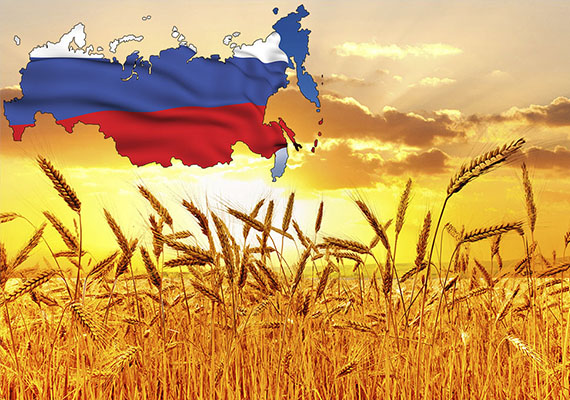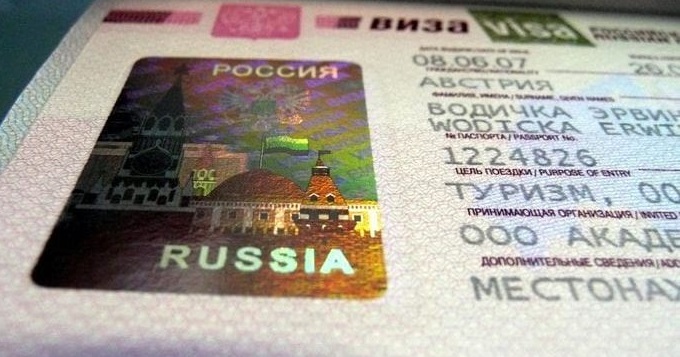Moving to Russia: questions and answers

Do I need a visa to visit Russia?
Yes, to visit Russia you may need to apply for one of the following visa types: tourist visa, business visa, student visa, work visa or e-visa. And you may not need a visa if you are a national of one of the 60 nations listed here.
How long can I stay in Russia as a visitor?
The period of stay of a foreign citizen cannot exceed 90 days from the date of entry into the Russian Federation, except for the cases when a foreigner visits Russia for study or work purpose and obtains a Student visa or Work Permit.
How can I move to Russia?
There are 3 ways to move to Russia
* Enroll in russian education system (Student visa).
* Find a job and sign a three-year contract (Work visa).
* Obtain a temporary residence permit and then a permanent residence permit.
The standard immigration procedure consists of the following steps: obtaining a temporary residence permit; obtaining a permanent residence permit and obtaining Russian citizenship. Under current law, the citizenship of Russia can be received after five years of residence and after passing an exam in Russian language.
Does Russia allow dual citizenship?
In 2020 a new law simplifying the naturalization process has been signed by the president. From July 2020 onwards, foreigners living in Russia will be able to become citizens of the country without giving up their existing passport. Original source.
How can I get a temporary residence permit in Russia?
Temporary Residence Permit (TRP) is a document granting a foreign citizen the right for temporary residence in the Russian Federation before obtaining Permanent Residence Permit or Russian Citizenship. Temporary Residence Permit is valid for 3 years.
Temporary Residence Permit may be granted to a foreign national within the quota limits or outside the quota limits.
In 2020 Russian Government has approved 60270 permits for the whole country, includng 2000 permits for Moscow and 4000 for Moscow region.
No grounds are provided for Temporary Residence Permit application within the quota category. The decision on whether or not an applicant falls within the quota limits is made by a proper commission.
You may fell within the outside the quota limits category if you
1) was born on the territory of the RSFSR and was a citizen of USSR, or born on the territory of the Russian Federation;
2) has been qualified as a disabled person and has capable son/daughter being a Russian citizen;
3) has at least one disabled parent being a Russian citizen;
4) are married to a Russian citizen having a place of residence in the Russian Federation;
5) has made investments in the Russian Federation in the amount set by the Government of the Russian Federation;
6) has enlisted for military service in Russian Federation.
7) has purchased a real estate. In 2020 Russia’s Ministry of Economic Development has made a proposal that will allow foreigners to obtain a residence permit after purchasing real estate. The bill may come into force as early as July 2021 (original).
How can I get permanent residence in Russia?
A Russian permanent residence permit may be obtained after holding a temporary residence visa for two years. The Russian permanent residence permit has a five-year validity period and can be extended without any limitation. However, just like the temporary residence visa, it must be authenticated on an annual basis.
How to obtain Russian tourist visa?
A tourist Russian visa is single-entry or double-entry only and can be valid for the period up to 30 days. If you are a US citizen, you can get a tourist visa to Russia valid for 3 years, and you can stay every 90 out of every 180 days on that type of visa. It usually takes the Russian consulate from 1 to 10 days to issue this type of visa and will cost from $50 US to $150 US, depending on the time of processing.
To obtain the Russian tourist visa, you need a tourist invitation. The tourist invitation comprises a tourist voucher and a tourist reservation confirmation, sometimes these two documents may be united in one. These documents can be issued by a Russian travel agency, which is registred as a tourist company in Russia, has a registration in the Russian Ministry of Foreign Affairs (MFA), and has a reference number in MFA. All these data should be stated on the invitation.
The price of a tourist invitation is usually $25 to $40 US, and it takes 1 hour to 1 day to issue it. It is usually sent to the applicant by fax, by e-mail (scanned copy), or by post (if the Russian consulate requires originals). Original source.

How to obtain Russian business visa?
This type of visa is supposed to be issued for the people, who come to Russia for business purposes. But because this type of visa allows long stays, multiple entries etc., it is also used by ordinary travelers, who need more flexibility.
A business Russian visa can be valid from 1 month to 12 months, and be either single-, double- or multiple entry. A person who obtained a multiple 1-year business visa can continiously stay in Russia for the period not longer than 90 days every 180 days. So, say if you stay 3 consecutive months you may only come back to Russia in 3 months.
A way around the 90 days staying rule is to get 3-month business visas and to do a visa run every 3 months to a country outside of Russia where you can get a new visa. You should be aware that Russian consulates in most countries only give visas to the people who have a permit of residence in the country the consulate is located. So, say, if you are a US citizen and go on a visa run to Estonia, you might not get a visa there unless you have a residence permit in there. However, all EU citizens have the right to live in any EU country, so if you are from UK, then you can go anywhere in Baltics to renew your visa. Original source.
How to obtain Russian student visa?
This type of visa is issued only for students, who come to Russia for exchange or education.
This is the best kind of visa, but you can only get it if you applied to a Russian university, school or an institution and will study there. In that case, you will need to submit your data to the university and the "foreign department" of the university will take care of all the formalities. They will submit all your data to the immigration officials and have your student invitation ready in about 7 to 10 days. After that, they'll either send you the invitation by post or by fax.
Usually, the student visa doesn't have a limited validity, it is extended all the time, depending on how long you study.
When you apply to the consulate for a student visa, you'll need to pay a normal fee, which will be about the same as for a tourist visa ($50-$150, depending on processing time).
It should be noted that because of change in the Russian law in October 2007 many expats found out they can't stay longer than 90 days in a 180-day period in Russia. In such situations, getting a student visa might help, but you should know that it's illegal to work on a student visa. Original source.
How to obtain Russian work visa?
Work visas are given to foreigners who have an official employment contract in Russia. It's a very long process to get one and only the companues that have quotas to employ foreigners can apply for it. However, such visa allows you to stay as long as you need in Russia (unlike business visa which only allows a maximum of 90 days within a 180-day period and which doesn't give you the right to work in Russia).
In order to get a work visa, you should find an employer first. After you found an employer, they should get a work permit for you and write you an invitation letter. After you have these documents, you can apply for a work visa in a Russian consulate. Beware of companies offering work visas online. The only visas you can officially get online are the tourist and business visas. If you need to stay in Russia longer than 90 days within a 180-day period and to be officially employed, work visa is the only legal way to do so. If you don't need to be officially employed, you can get a student visa or get a few 3-month business visas, one after another. Original source.
Russian e-visa: what is it and how can I get it?
Since October 2019 citizens of EU can visit St. Petersburg and St. Petersburg region on a special e-visa for Russia, which is issued as an electronic document and is valid for 8 days maximum. You don't have an invitation or visa support for this type of visa, however, the territory of your travel is limited. A special type of e-visa is also available for Kaliningrad region.
If you are a citizen of Japan, China, Hong Kong, and some other Asian countries, you can also visit the Far East (Vladivostok, Kamchatka, Sakhalin) on the e-visa.
Click on the link to get more info about Russian e-visa.
How to apply for TRP within quota limits?
In order to apply for the TRP quota it is necessary to fill in the prescribed form and attach the following documents:
* copy of passport or a notary-certified copy of its translation;
* a copy of the migration card;
* a copy of the notification of arrival to the place of residence;
* copies of documents confirming the information specified in the profile (e.g., certificate of education; documents confirming kinship with living in Moscow by right of the TRP or the PRP, or Russian citizens who are family members or close relatives of the applicant; a work permit / patent, employment contract, certificate of state registration of property rights to housing, account statements, etc.).
* Documents are considered on a monthly basis by a special Commission consisting of a number of the committee chairman, deputy chairman of the Commission, the secretary and members of the Commission, approved by the order of the Federal Migration Service.
The term of consideration of the application is approximately one month, right after that the FMS posts lists of the quota, indicating the name and nationality of the TRP owners. Foreign citizens who have received a treasured quota shall submit the documents for the TRP to the Federal Migration Service within two months.
The law does not provide grounds for granting or refusing the quota, and therefore the law does not provide any clear criteria that would guarantee the receipt of the TRP quotas. That’s why it is impossible to appeal the decision to refuse the quota in a court.
The Commission also takes into account the following factors when considering applications for the quota to a foreign citizen:
* reasonability of living in the region, taking into account the economic, demographic, ethnic, cultural and other conditions;
* the state of the labor market, social, demographic, ethnocultural, and the crime situation;
* the need to ensure the migration safety, sanitary and epidemiological welfare of the population, inter-ethnic and inter-confessional consent;
* there are applications from companies, organizations, diaspora, national-cultural autonomies, state agencies;
* there is a personal information on a foreign citizen that may be relevant to the consideration of the application for the TRP;
* there are close relatives (spouses, parents, children) of foreign citizens residing (staying) in the region, who have the TRP or the PRP, with the able-bodied parents – Russian citizens;
* there is a housing accommodation by right of ownership;
* there are significant savings, other movable and real property in Russia.
How much does it cost to live in Russia?
Life for expats in Russia is generally comfortable, with expenses such as groceries, transport and utility bills being fairly inexpensive even in major cities such as Moscow. Outside of the major metropolitan areas, prices are even cheaper, with lower bills for food and transportation. Depending on the location, the average monthly cost is from 15,000 rubles ($230 US) to 30,000 rubles ($460 US) per person.
How much does it cost to rent a home in Russia?
When it comes to renting a property in Russia you have a choice between a city appartment and a house outside of the city.
The average monthly prices of a city appartment are 10,000 rubles ($155 US) for 1-room (studio) apartment, 15,000 rubles ($230 US) for 1-bedroom and 20,000 rubles ($310 US) for 2 bedroom apartments.
The average monthly price of 2- or 3-bedroom house outside of the city may vary from 15,000 rubles ($230 US) to 20,000 rubles ($310 US). The cost of a house in rural areas with limited facilities (outside toilet, for instance) may be even cheaper: from 8,000 rubles ($125 US) to 15,000 rubles ($230 US).
Can a foreigner buy a real estate property in Russia?
The short answer is "Yes!" As a foreigner you can buy and own residential land or residential property: an appartment or a house located on residential land. The restrictions apply to agricultural land - not to be sold to a foreigner, it is only allowed for renting.
A buyer just needs to have a confirmation of the right to stay in the country (it can even be a tourist visa), choose the property and conduct a standard purchase and sale transaction.
Moreover, the new bill that may come into force in the mid 2021 will allow a foreigner who bought a property in Russia to apply for Russian temporary residence permit outside quota limits.
The real estate prices vary widely throughout the country. We won't touch upon major cities - Google search will help you to find plenty information in the Internet. We will give you the price range for an average village in the South of Russia, Krasnodar region with population of about 20,000 - 30,000 people, located at 55 km from the city of Krasnodar.
* Small 2-bedroom house, with outside kitchen, living area 30-40 sq.m., set on land plot of 700 sq.m. cost about 1,500,000 rubles (22,000 USD)
* Brick 3-bedroom house with outside kitchen, living area 35-50 sq.m., set on 600 - 800 sq.m. land, cost about 2,200,000 rubles (32,000 USD)
* Brick house, 3-4 bedrooms, kitchen, bathroom and all mordern facilities - inside, set on 600-800 sq.m. land, cost about 3,000,000 (43,000 USD)
* Modern cottage, 4-5 bedrooms, with all facilities inside, set on 600-800 sq.m. land, cost about 4,5 - 5,0 millon rubles (65,000 - 72,000 USD)
For more info please read this article: Moving to Russia: A guide to buying a property in Russia
If you have more questions about relocation to Russian and life in Russia, please contact Yury at [email protected]
More articles on the topic:
3 Vital Issues of Putin's State of the Nation Address 2020
Moving to Russia: A guide to buying a property in Russia
Moving to Russia: A guide to buying land in Russia
If you like this article please help keep us going, no matter the amount, your donation makes a difference!







Leave your comment